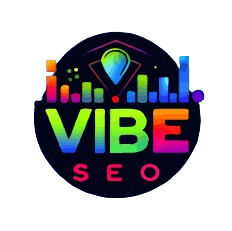What is SEO?
In today’s digital world, standing out online is essential for businesses to thrive. This is where SEO, or search engine optimization, comes into play. This is a strategic approach to improving a website’s visibility in search engine results, which directly impacts how easily potential customers find your business online. By optimizing various elements of your website, it helps ensure that it ranks higher on search engine results pages (SERPs) when users search for relevant keywords.
SEO At Its Core
It is about understanding how search engines work and how people search for information online. When someone types a query into Google or Bing, complex algorithms determine which websites rank at the top. It ensures your website meets the criteria these algorithms prioritize, helping your business appear prominently in searches.
Many factors influence SEO, beyond simply placing keywords on a page. Search engines like Google use hundreds of ranking signals to evaluate a website’s relevance and authority. These include on-page elements like content quality, keyword optimization, and internal links. Off-page factors like backlinks and domain authority also play a crucial role. A well-rounded SEO strategy incorporates all of these components to improve a website’s performance over time.
Key Aspects of SEO
Keyword Optimization
One key aspect of SEO is optimizing your website for the right keywords. Keyword research helps identify the phrases potential customers use when searching for products like yours. By integrating these keywords naturally into your website’s content, meta descriptions, and headers, search engines will recognize your site as relevant. However, avoid keyword stuffing, as search engines penalize unnatural overuse.
High-quality content is essential for effective SEO. Search engines prioritize websites offering valuable and engaging content to users. If your website provides answers to common questions, it improves your rankings and builds trust with visitors. Regularly publishing fresh, relevant content like blogs and articles also keeps your website active and indexed by search engines.
Site Architecture
Another crucial element of SEO is site architecture. A well-structured website impacts both user experience and performance. A clean layout helps visitors navigate easily, reducing bounce rates and increasing time spent on pages. Search engines can crawl and index your site more effectively with clear navigation and optimized URLs. This is why businesses invest in technical SEO to optimize both the back-end and front-end of a site.
Mobile optimization is also critical for SEO. With most users accessing websites from mobile devices, search engines prioritize mobile-friendly sites in their rankings. Ensuring your website loads quickly and functions well on mobile is essential for SEO success. Slow-loading pages or poor mobile experiences will harm your rankings.
Backlinks
Backlinks are another major factor in SEO success. A backlink is a link from another website that directs traffic to your site. When reputable websites link to your content, it signals to search engines that your site is trustworthy. Building a strong backlink profile involves outreach and creating content others want to share. Avoid low-quality or spammy backlinks, which can damage your SEO rather than improve it.
Local SEO is crucial for businesses targeting specific geographic areas. It involves optimizing for location-based keywords and ensuring consistent business information across all platforms. Google My Business is a vital tool for local SEO, helping your business appear in local searches and on Google Maps. This is essential for attracting local customers searching for nearby services.
User Experience and Core Web Vitals
User experience (UX) has become an essential part of SEO. Google now focuses on how users interact with websites, using factors like page load time and visual stability as ranking signals. Websites offering a fast, smooth experience are more likely to rank higher. Ensuring your website meets performance standards benefits SEO and enhances customer satisfaction.
Social signals also contribute to SEO success, though indirectly. When users share your content on social media, it increases visibility and drives traffic to your site. This increase in traffic can improve your rankings over time, as search engines recognize engagement with your content. Encouraging social sharing can complement your SEO efforts by extending your content’s reach.
Ongoing SEO Efforts
SEO is an ongoing process, unlike paid advertising, which delivers instant results. It takes time and consistent effort to see long-term benefits from SEO. Monitoring your website’s performance with analytics tools is essential for tracking rankings, traffic, and user behavior. SEO audits help identify areas for improvement, allowing your strategy to evolve with changing algorithms and user behavior.
Conclusion
SEO is a multifaceted digital marketing strategy designed to improve your website’s visibility and rankings in search engine results. By focusing on keyword optimization, quality content, strong backlinks, and structured site architecture, businesses can achieve higher rankings and attract more visitors. As search engines evolve, businesses must adapt their SEO strategies to remain competitive and meet user expectations.
At Vibe SEO, we provide tailored SEO solutions that help businesses improve domain ratings, acquire high-quality backlinks, and enhance site architecture. Our team focuses on both on-page and off-page SEO to ensure your website is optimized for success in the ever-changing digital landscape. If you’re looking to boost your search engine rankings and online visibility, our expert team is ready to help.



